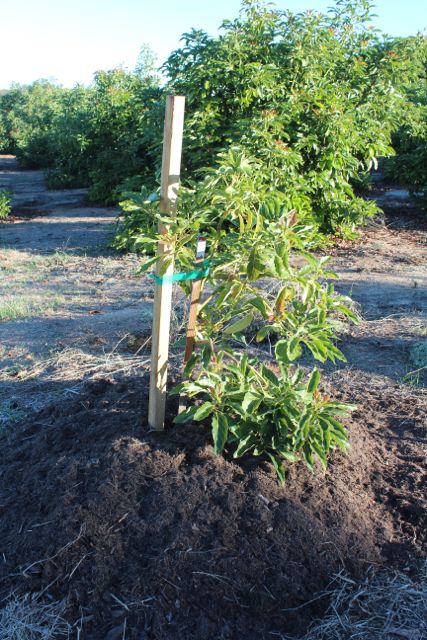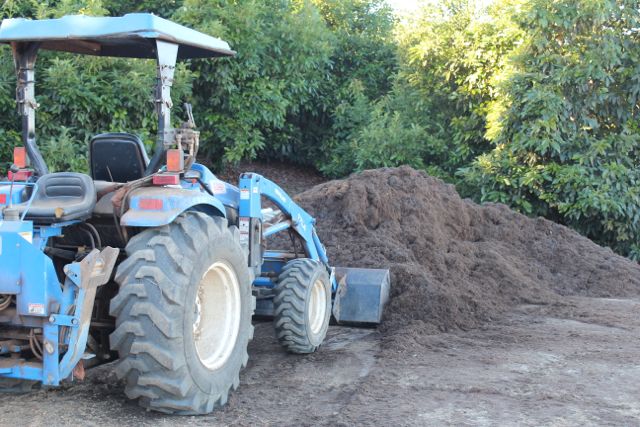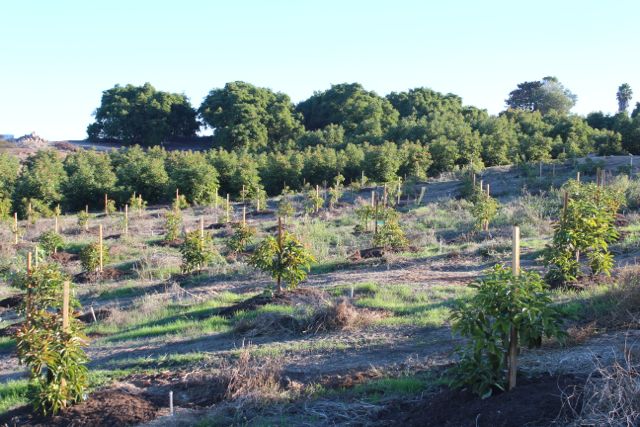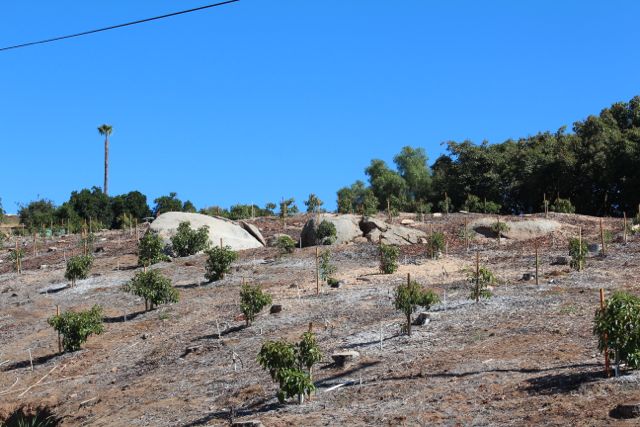It’s a beautiful morning here at the ranch, so I headed out for a walk to see what’s going on. Once the harvest season is over, there are lots of projects to do that will help the soil, the trees, and the baby avocados that are already growing for next year. Last spring we cut down some of the older trees that my husband planted over 40 years ago. We replaced them with brand new baby avocado trees before the summer harvest season started. These baby trees had the advantage of spring rains and warm growing season. Now it’s time to wrap them up with a warm and nourishing blanket of mulch.
Here you can see the taller, older trees with younger trees that were planted a few years ago in front of them. The baby trees that we planted this year are in the foreground, each with a stake to help it stand up straight and a nice blanket of mulch around the base of the tree. You can also see that each tree has a riser and a sprinkler for irrigation.



See those huge boulders? There are lots of rocks on the hills in this area. Avocado trees love to grow in soil with good drainage, so you will often see avocados growing on steep hillsides if you visit Southern California. The stumps of the old trees have been taken away for firewood, and these baby trees are all ready to grow. These baby trees will require special pruning, nutrients, and careful observation so that pests or diseases don’t kill them. Farmers watch the weather predictions to anticipate heat spells, freezing weather and winds. With good care, avocado trees can produce for 30 years or more.

“Why do farmers farm, given their economic adversities on top of the many frustrations and difficulties normal to farming? And always the answer is: “Love. They must do it for love.” Farmers farm for the love of farming. They love to watch and nurture the growth of plants. They love to live in the presence of animals. They love to work outdoors. They love the weather, maybe even when it is making them miserable. They love to live where they work and to work where they live. If the scale of their farming is small enough, they like to work in the company of their children and with the help of their children. They love the measure of independence that farm life can still provide. I have an idea that a lot of farmers have gone to a lot of trouble merely to be self-employed to live at least a part of their lives without a boss.”
― Wendell Berry, Bringing it to the Table: Writings on Farming and Food






7 Comments
Leave a reply →